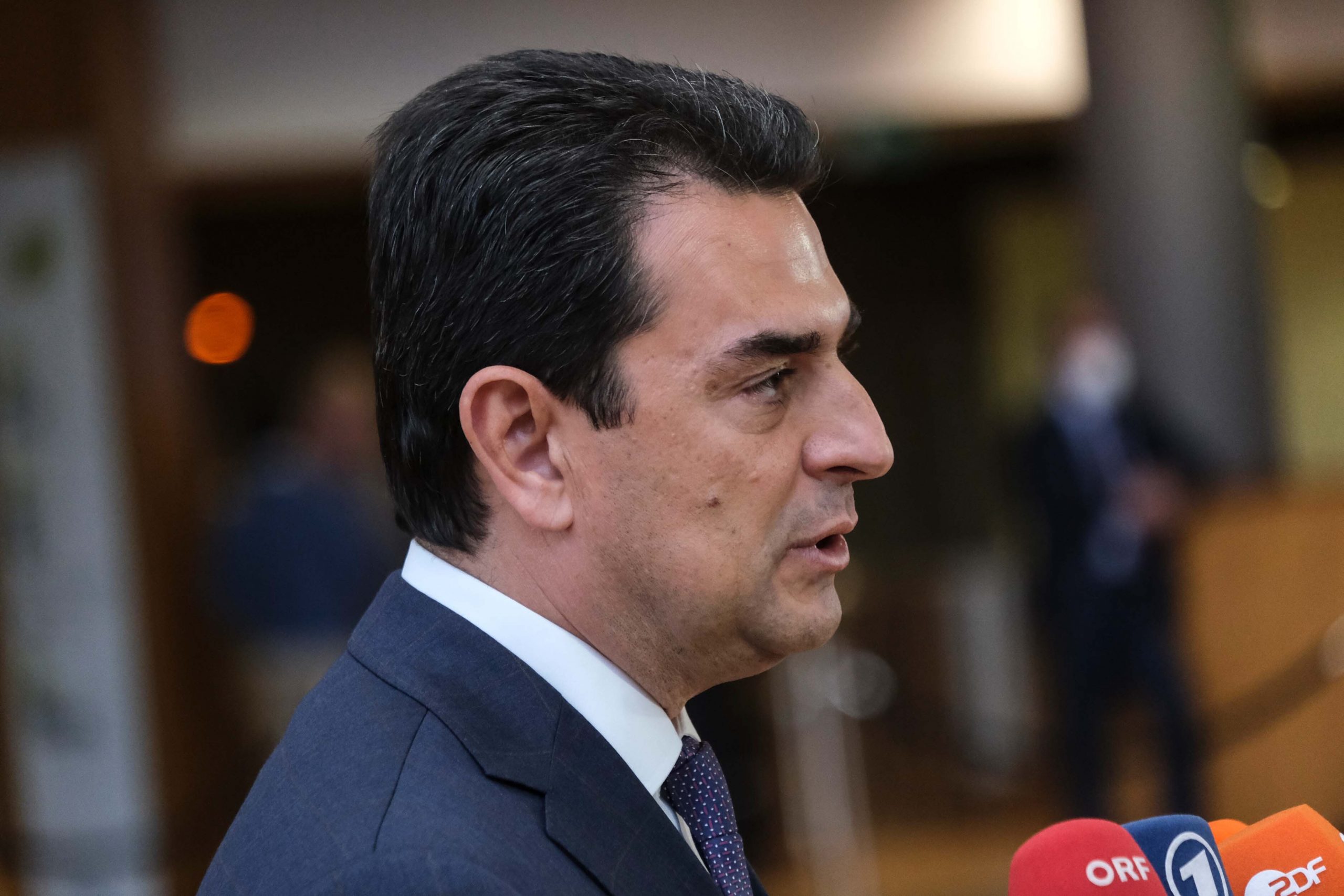The Minister of Environment and Energy and the Secretary General of Energy and Mineral Resources are in Brussels today, where they will meet with technical staff of the Energy Directorate-General of the European Commission for the electricity price intervention mechanism that the government wants to implement from 1 July.
Costas Skrekas and Alexandra Sdoukou, according to the information, will seek in private meetings to present and explain the operation of the mechanism in order to expedite its approval.
For the past two weeks, the leadership of the ministry has been in teleconferences and exchanging technical documents for the temporary operation system of the domestic electricity market that the government wants to put in place. Sources state that the DG ENERGY officials have sent questions on various aspects of the interim measures and the ministry in turn sends answers and texts documenting the positions of the Greek side.
However, according to sources, the approval of the Greek measure still has a long way to go. They remind that the corresponding proposal of the Iberian countries had to wait to get the “green” light for about two and a half months.
It is worth noting that the revised toolbox of the European Commission with the proposed measures in the Member States includes the imposition of a maximum price per electricity generation technology, however it sets a number of conditions for its implementation. Among other things, the issue of state aid and cross-border trade is raised.
The mechanism
It is recalled that the government has designed a mechanism to intervene in the wholesale and retail electricity market with the aim of greatly reducing prices for at least six months. According to the information, the Greek plan provides for the definition of maximum compensation prices for electricity generators (depending on the technology) for the electricity they produce and have through the Greek Energy Exchange, but without affecting the configuration of the System Limit Price and the way which market players bid on it.
Then there will be an average selling price of electricity, based on which the providers will buy the quantities of electricity. In order for the state to subsidize the price of the kilowatt hour it will subsidize suppliers so that in turn they pass on the overall benefit (low wholesale price and subsidy) to all electricity consumers.
The result of the additional revenue
In the meantime, and according to information, the government finally instructed the Energy Regulatory Authority to determine the additional revenues of electricity generators during October 2021 – March 2022 that can be taxed at 90%.
The Regulator, according to sources, is currently in an exchange of views with the power groups. It is noted that individuals challenge the methodology followed by RAE, citing as typical examples the fact that their units did not operate during the period October 2020 – March 2021, a period during which the comparison was made to draw conclusions about additional revenue during the period. of the energy crisis.
In addition, there is great concern as to whether or not the discounts and fixed electricity bills that vertical groups have made to their customers should be deducted from electricity revenues. It is recalled that the President of the Authority, Athanasios Dagoumas, speaking in Parliament, described as reasonable the fact of deducting these benefits from the additional revenues.




